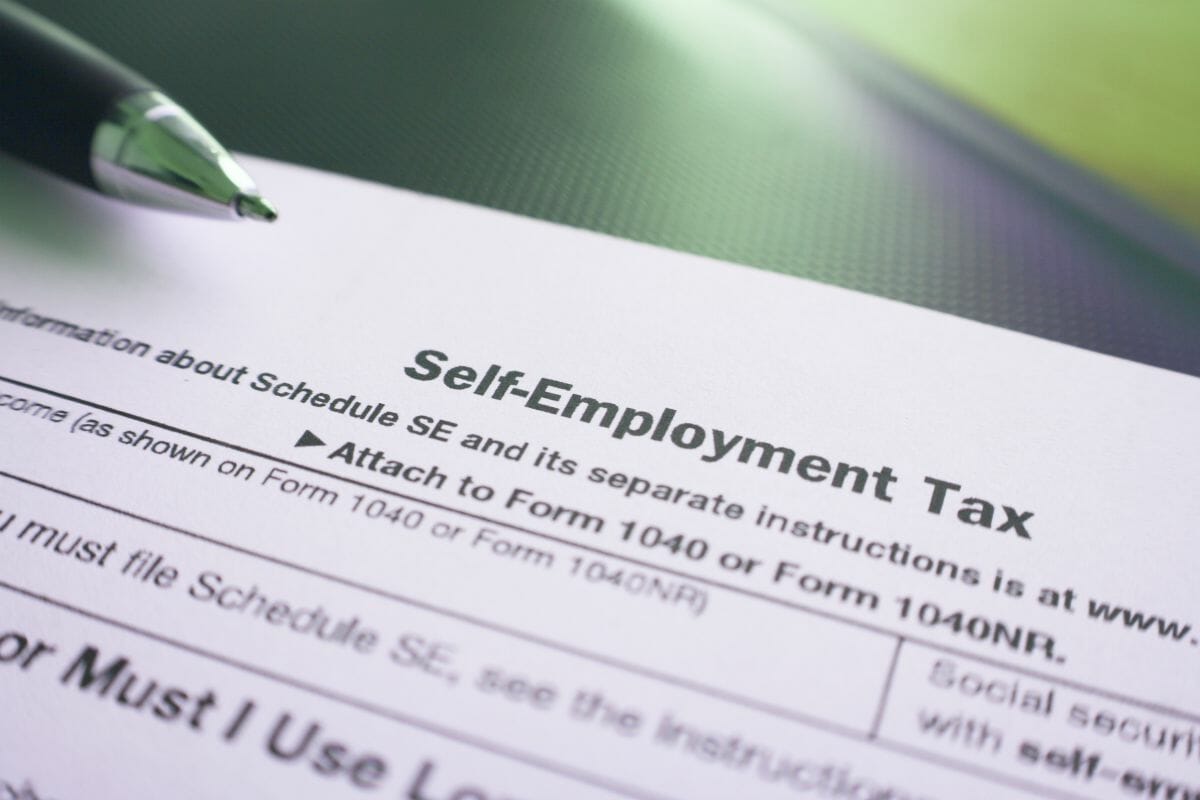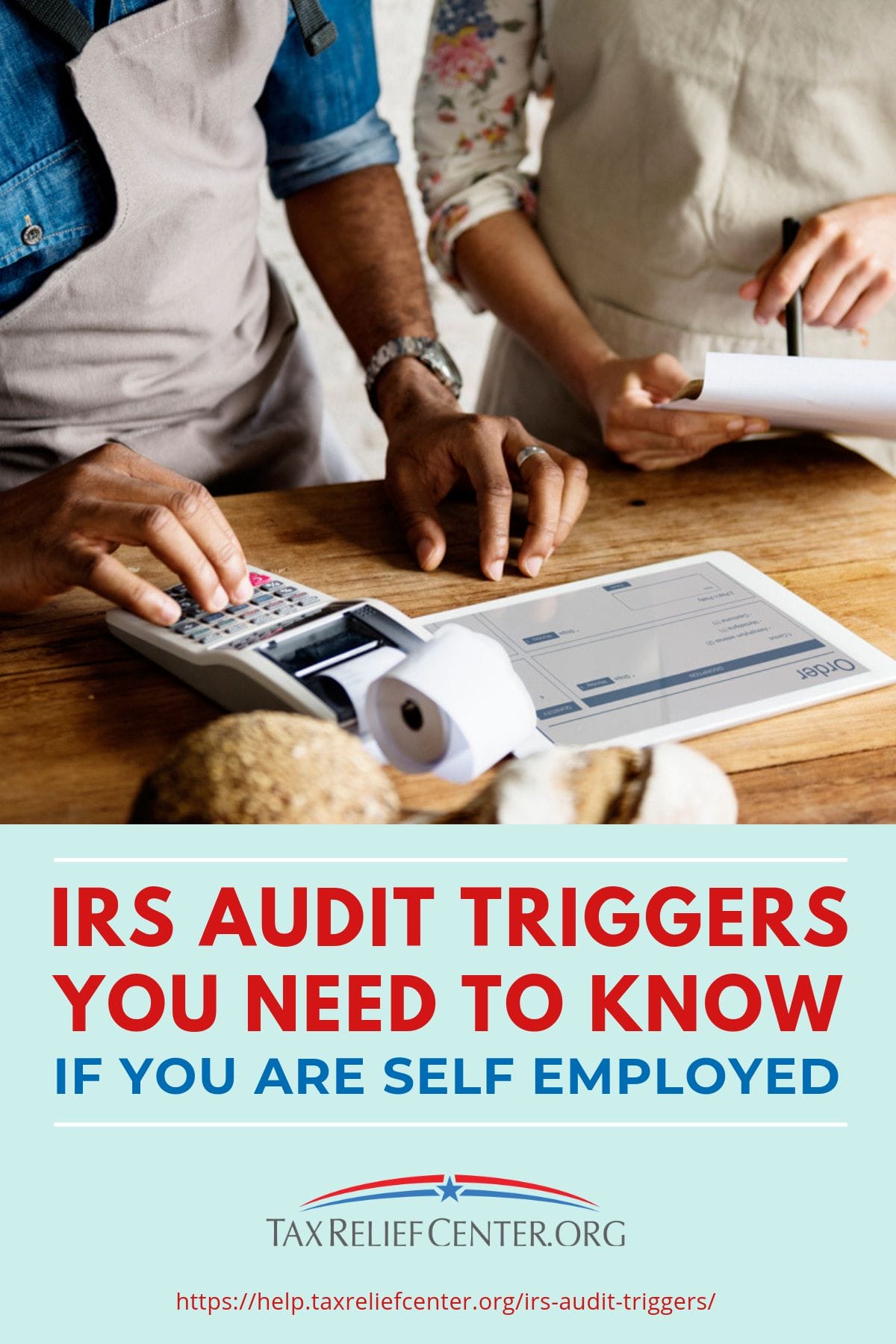Self-employed taxpayers should familiarize themselves with IRS audit triggers to avoid a costly tax audit through prudent actions.
RELATED: How To Avoid Taxes Through The Mortgage Forgiveness Debt Relief Act
In this article:
- Who Does the IRS Consider as Self-Employed?
- What Are the Proper Business Deductions for Self-Employed Taxpayers?
- What Are IRS Audit Triggers for Self-Employed Individuals?
- What Are IRS Audit Penalties for Audited Self-Employed Taxpayers?
Frequently Asked Questions About IRS Audit Triggers for the Self-Employed
Who Does the IRS Consider as Self-Employed?
According to the IRS self-employed portal, an individual is self-employed when he or she meets any of these three conditions:
- The taxpayer is leading a business or trade alone as an independent contractor.
- If the taxpayer is either a shareholder of a company or corporation of at least two or more members of the business board for profit.
- You are doing business for yourself whether full-time or part-time.
The first two conditions are easy to explain.
Simply put, the former entails that you are the owner of a store. Whereas, the latter implies that you and your friend both own the store — whether the shares are divided equally or not.
The third condition mostly applies to professionals who are their own bosses, for example, a retired doctor operating a medical clinic in their town.
This can also apply to part-time workers who earn a sideline revenue outside of their regular working hours.
A typical example is an electrician in a power plant during weekdays who works part-time by repairing wirings, appliances, and devices in their locality. Suppose they use their own tools, they then qualify as self-employed, and must report the side job as self-employed revenue in addition to their salaried income.
Important note: Some self-employed taxpayers suffer from employee misclassification, which robs them of tax benefits as well as Social Security and Medicare contributions.
Knowing how to differentiate between employees and independent contractors can save both businesses and workers valuable time and money. Not only will the business owner merit many misclassification penalties, but also a special IRS misclassification audit they should prioritize.
What Are the Proper Business Deductions for Self-Employed Taxpayers?

In a general sense, self-employed individuals pay self-employed tax (SE tax) quarterly and file an annual report.
A self-employed person needs to assess his/her earnings. The first thing to do is to account for the company’s expenses and income.
In some cases, small businesses are exempted or limited from SE tax, but small entrepreneurs must commit to other federal obligations. For more information, look up Pub. 334, Tax Guide for Small Business (For Individuals Who Use Schedule C or C-EZ).
As a rule of thumb, self-employed individuals have to file an income tax return when the net earnings reach $400. Otherwise, a self-employed person still needs to file an income tax return to meet other requirements in Form 1040, such as (but not limited to):
- Home office utility expenses. The self-employed can use the utility bill of his or her own office as a business expense.
- Travel and transportation. As long as the taxpayer has the receipts, or uses the IRS mileage chart (as of 2019) for calculations of tax-deductible mileage expenses.
- Professional expenses, particularly registration in peer groups as well as career and skill developments. The IRS may allow legitimate group fees as tax deductible (like bar association fees for lawyers).
- Advertising and marketing. With more people going digital, advertising and marketing costs can rise, and the IRS can allow tax deductibility for reasonable expenses for getting your name known.
- Construction of a home office. Like the utility bills for your home office, the IRS can give tax deductibility for office construction as long as the taxpayer proves the reasonableness of the expense with documents and records.
- Startup costs and operating costs of a website. Again, the taxpayer should prove that the expenses are related to the necessary expenses for a website set up for purely business or self-employment purposes.
- Legal costs for incorporation. Successful self-employed and independent contractors can transition to an incorporated entity, and the IRS allows the first year cost as well as registration fees as tax deductible.
RELATED: The IRS Appeals Process For These 3 Common Cases
What Are IRS Audit Triggers for Self-Employed Individuals?
- Inconsistent Information on Reports
Self-employed taxpayers typically have a lot of deductions and expenses to look after compared to salaried individuals. Due to this added layer of complexity and processes, self-employed taxpayers can make errors in their tax returns.
The IRS will notice almost immediately if the records lack inputs or look different from what was previously reported. Be sure to not leave any spaces in the forms blank, and always refer to old reports to avoid unsolicited attention from auditors.
- High Discrepancy with Reported Income Compared to Peers
If a taxpayer has too high or too low reported income, the IRS algorithm can immediately pick up a tax return and forward it to an IRS auditor.
However, the IRS does send a letter asking for confirmation first, so a taxpayer should prepare supporting documents to prove that there is no shady business happening on their tax return.
- Errors in Filing Schedule C Form
Since self-employed individuals have higher risks of inaccurate data, either willfully or mistakenly, any errors in filing the Schedule C form (the IRS form for profits and loss for a sole proprietorship) can lead to an audit, even careless typos.
- Spending Beyond Your Means
As a way to protect the state from money laundering and other dirty fiscal shenanigans, the IRS, together with other investigating agencies, checks the lifestyle of taxpayers. If the business owner leads a lifestyle seemingly impossible to sustain by the amount of income declared, they will turn a suspicious eye on you.
Self-employed taxpayers can minimize the risks of an audit by:
- Reporting all income. Better to overreport income and get a tax refund than underreporting taxes and get a scary IRS collection notice.
- Read all the possible deductions, and if you are not sure if you qualify, better call the IRS.
What Are IRS Audit Penalties for Audited Self-Employed Taxpayers?

Most of the punishments imposed on delinquent self-employed taxpayers involve both accuracy problems as well as failure to pay and file taxes.
- IRS Penalty for Filing Taxes Late. The IRS levies a 5% fee of the total unpaid taxes each month up to 50% maximum, which can substantially increase your tax debt.
- IRS Failure to Pay. While this penalty is lower, levying only .5% rather than 5%, the IRS still takes money that taxpayers may need.
- Civil Fraud Penalty. The IRS may find a taxpayer guilty of fraud when they underreport their income, which comes with a massive 75% penalty of the fraudulently underreported taxes.
- Fraudulent Failure to File Penalty. If a taxpayer filed taxes late and gave a fraudulent reason, the IRS attaches a monthly 15% fee on underreported taxes, up to a maximum of 75%.
- Understatement of Taxes. If the taxpayer pays their taxes lower by $5,000 or 10% from previous numbers without a good reason, the taxpayer can incur a 20% penalty.
IRS audit triggers are not necessarily indicative of malice, and the IRS can easily postpone or cancel any audit if the taxpayer properly explained what happened. The IRS is not after you personally, but after only what is right and just.
What are your thoughts about IRS audit triggers? Have you ever been through the audit process? Share your story in the comments section below.
If you owe back taxes, visit taxreliefcenter.org for more information on tax relief options.
Up Next:
- 9 Tax Records You Should Keep In Your Business To Avoid IRS Audit
- What Is An IRS Backup Withholding Notice And How To Deal With It
- How To Calculate Your Estimated Tax Penalty


